Table of Contents
- Introduction: Why Keyword Research Matters
- Google Keyword Planner: The Classic Choice
- SEMrush: The All-in-One SEO Powerhouse
- Ahrefs: The Data-Driven Researcher’s Dream
- Moz Keyword Explorer: The User-Friendly Option
- KWFinder: The Long-Tail Keyword Specialist
- Answer the Public: The Question Master
- Ubersuggest: The Budget-Friendly Alternative
- SpyFu: The Competitor Intelligence Tool
- KeywordTool.io: The Google Suggest Exploiter
- Wordtracker: The Niche Market Explorer
- Conclusion: Choosing the Right Tool for You
Introduction: Why Keyword Research Matters
Finding the right Keyword Research Tools in the vast digital landscape is like discovering hidden treasure. Whether you’re a student working on a research project, an entrepreneur launching a new product, or a seasoned content creator, understanding what people are searching for online is crucial. That’s where keyword research comes in. It’s the compass that guides your content strategy, helping you navigate the choppy waters of search engine optimization (SEO) and organic search.
But with so many keyword research tools available, how do you choose the right one? Don’t worry! We’ve done the heavy lifting for you. In this blog post, we’ll explore the top 10 keyword research tools that can help you uncover valuable insights and boost your online visibility. Let’s dive in!
1. Google Keyword Planner: The Classic Choice

When it comes to keyword research, Google Keyword Planner is often the first tool that comes to mind. And for good reason!
Key Features:
- Free to use with a Google Ads account
- Provides search volume data and competition levels
- Offers keyword ideas and variations
Google Keyword Planner is like the Swiss Army knife of keyword research tools. It’s versatile, reliable, and comes straight from the source – Google itself. While it’s primarily designed for paid search campaigns, it’s equally valuable for organic search strategies.
Pro Tip: Don’t just focus on high-volume keywords. Sometimes, long-tail keywords with lower search volumes can be easier to rank for and more targeted to your audience.
2. SEMrush: The All-in-One SEO Powerhouse
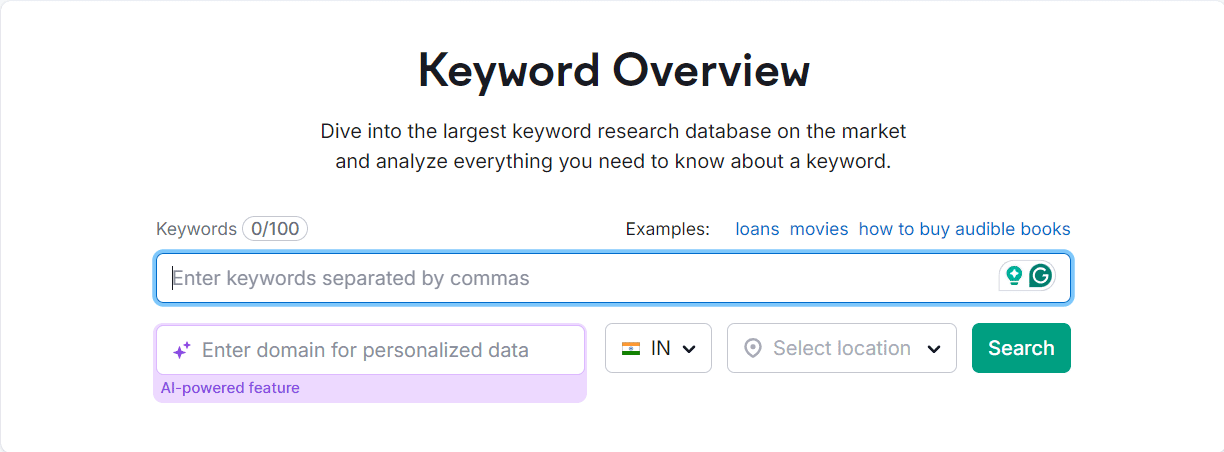
SEMrush is more than just a keyword research tool – it’s a complete SEO suite. But its keyword capabilities are particularly impressive.
Key Features:
- Comprehensive keyword database
- Competitor keyword analysis
- Keyword difficulty score
With SEMrush, you can peek into your competitors’ keyword strategies, find long-tail keywords, and even discover questions people are asking about your topic. It’s like having a crystal ball for SEO!
3. Ahrefs: The Data-Driven Researcher’s Dream

Ahrefs is another heavyweight in the SEO world, and its Keywords Explorer tool is a gem for keyword research.
Key Features:
- Massive keyword database
- Accurate search volume estimates
- Click metrics and keyword difficulty scores
Ahrefs stands out with its “clicks” data, showing you not just how many people search for a keyword, but how many actually click on the results. This can be a game-changer in choosing keywords that drive real traffic.
4. Moz Keyword Explorer: The User-Friendly Option
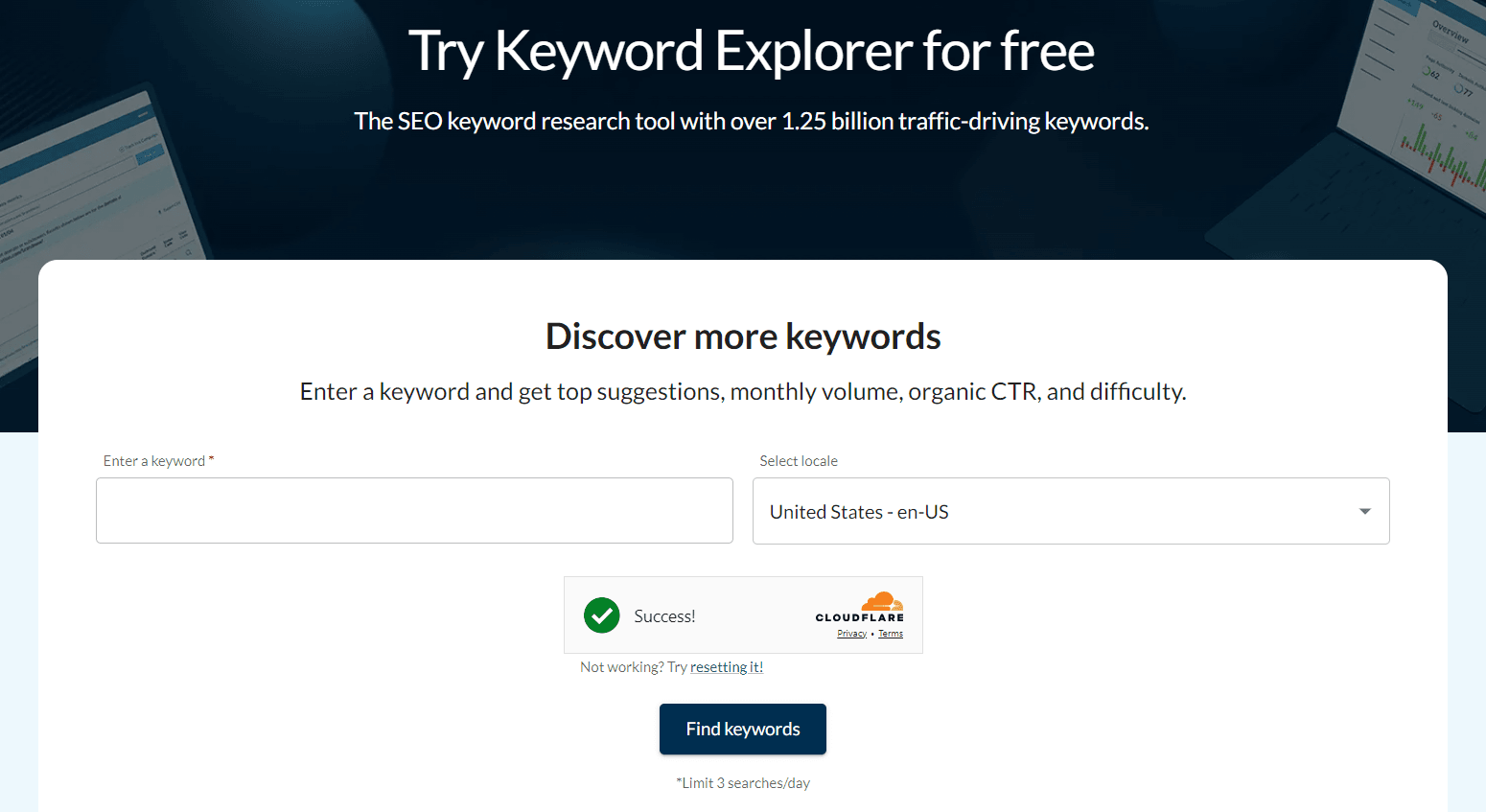
If you’re new to SEO and keyword research, Moz Keyword Explorer offers a gentle learning curve without sacrificing power.
Key Features:
- Intuitive interface
- Keyword suggestions and groupings
- Priority score to help focus your efforts
Moz’s Priority score is particularly helpful, combining search volume, difficulty, and opportunity into a single metric. It’s like having a personal SEO coach guiding your keyword choices!
5. KWFinder: The Long-Tail Keyword Specialist
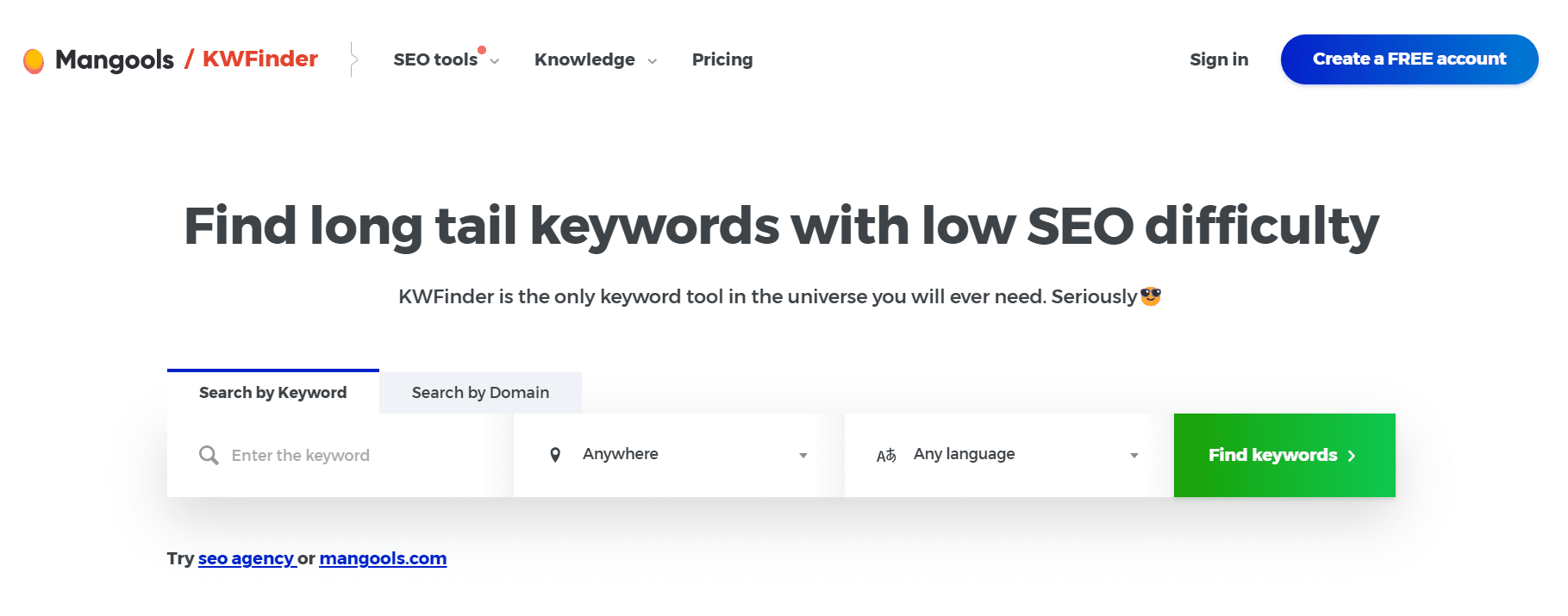
Sometimes, the best opportunities lie in the less obvious keywords. That’s where KWFinder shines.
Key Features:
- Focus on long-tail keywords
- Clean, easy-to-use interface
- Accurate difficulty scores
KWFinder is excellent for finding those hidden gem keywords that your competitors might have overlooked. It’s particularly useful for bloggers and content creators looking to target niche topics.
6. Answer the Public: The Question Master
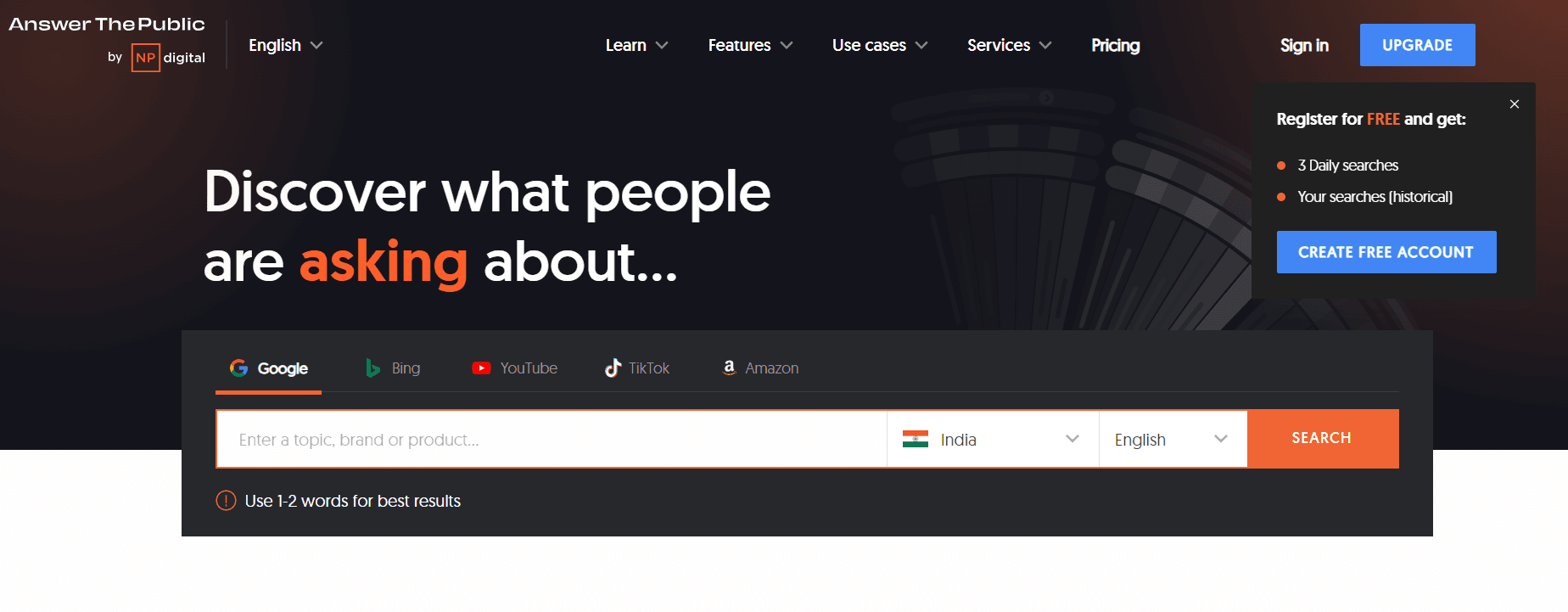
Ever wonder what questions people are asking about your topic? Answer the Public has got you covered.
Key Features:
- Visualizes search questions and phrases
- Helps create content that answers real user queries
- Free version available
This tool is a goldmine for content ideas. By showing you the questions people are asking, it helps you create content that directly addresses your audience’s needs. It’s like mind-reading, but for SEO!
7. Ubersuggest: The Budget-Friendly Alternative
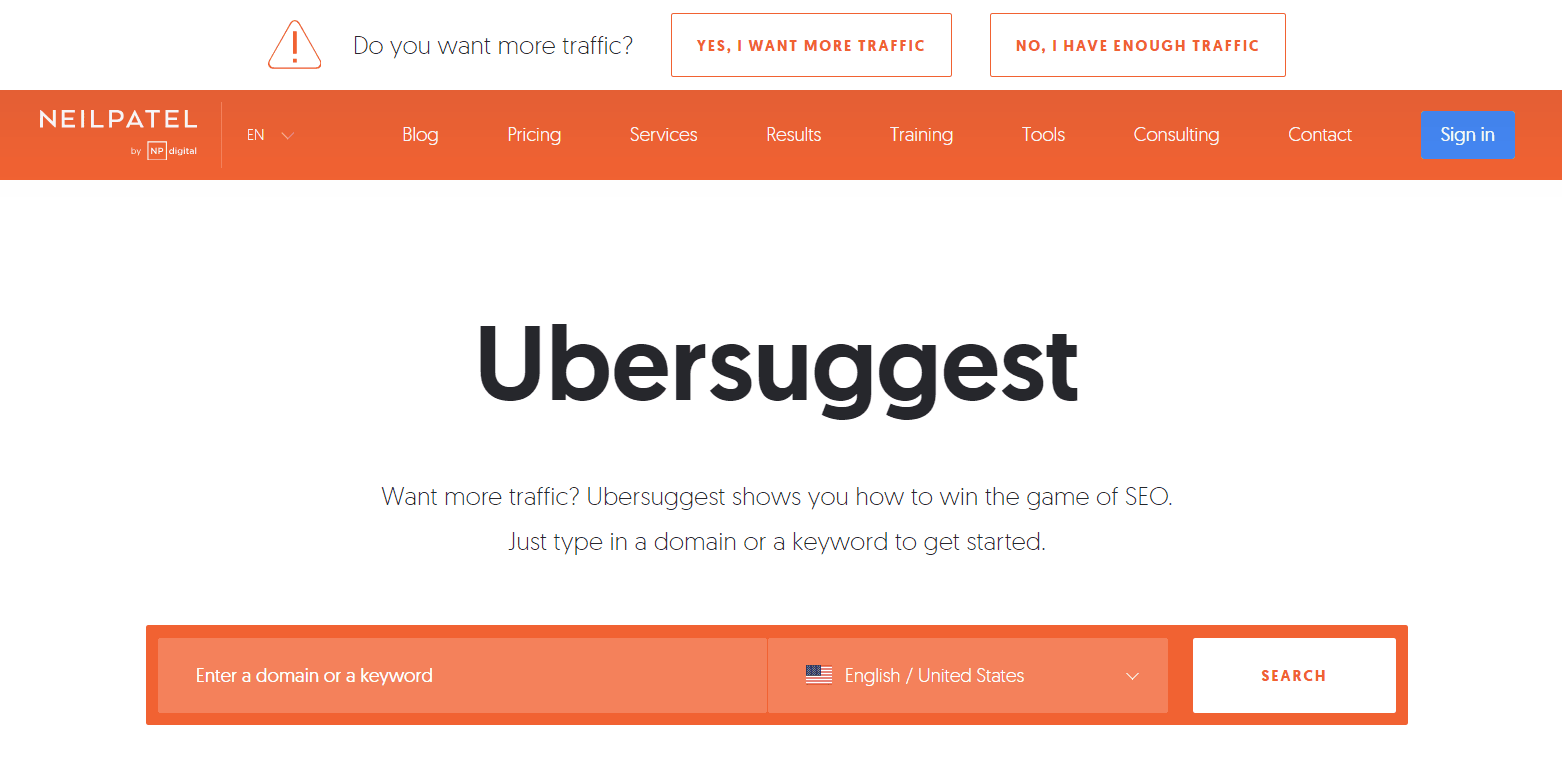
Neil Patel’s Ubersuggest offers a robust set of features at a more affordable price point than some of its competitors.
Key Features:
- Keyword suggestions and volume data
- Content ideas based on keywords
- Basic SEO auditing tools
Ubersuggest is great for small businesses or solo entrepreneurs who need solid keyword data without breaking the bank. It’s like getting a taste of the premium tools without the premium price tag.
8. SpyFu: The Competitor Intelligence Tool
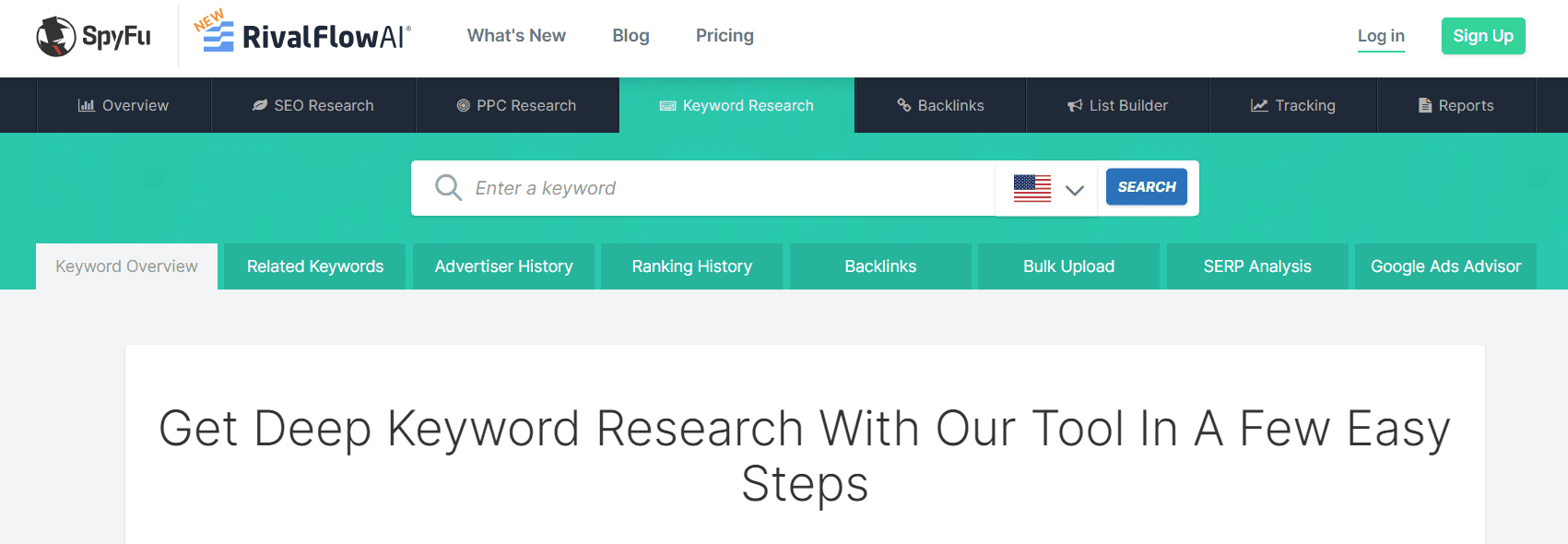
Want to know what keywords your competitors are ranking for? SpyFu is your go-to tool.
Key Features:
- Competitor keyword analysis
- Historical data on keyword rankings
- PPC and organic search insights
SpyFu lets you “spy” on your competitors’ keyword strategies, helping you find gaps in your own approach. It’s like being a secret agent in the world of SEO!
9. KeywordTool.io: The Google Suggest Exploiter
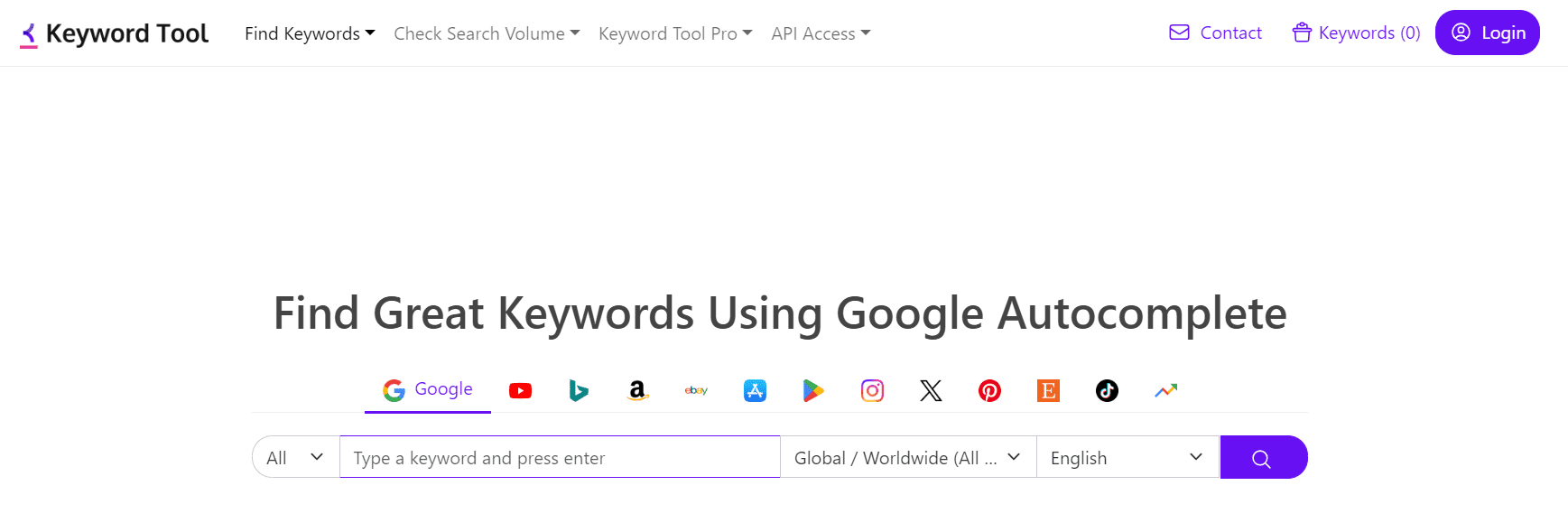
KeywordTool.io taps into Google’s autocomplete feature to generate hundreds of relevant keyword ideas.
Key Features:
- Generates keywords from Google Suggest
- Supports multiple search engines and YouTube
- Free version available
This tool is particularly useful for finding long-tail keywords and understanding how people phrase their searches. It’s like having a direct line to your audience’s thought process.
10. Wordtracker: The Niche Market Explorer
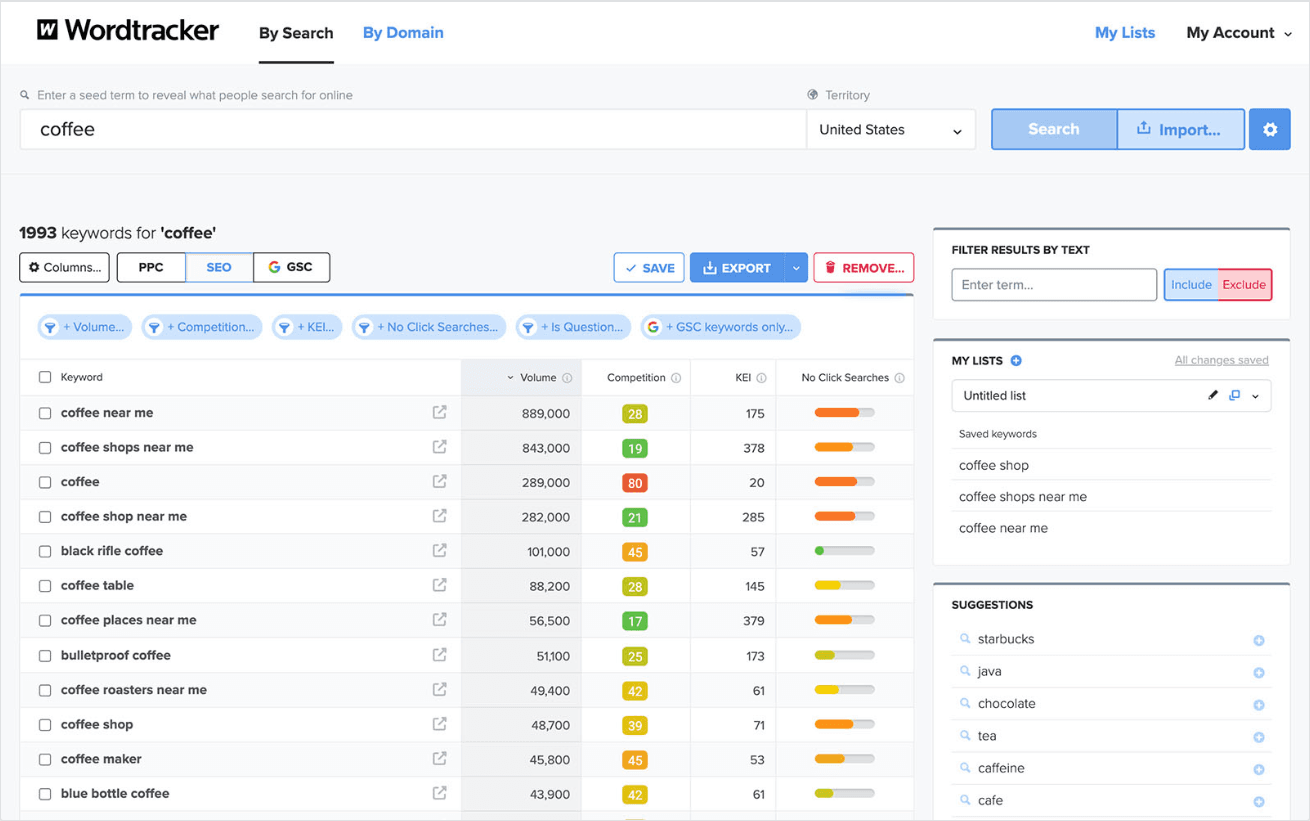
Rounding out our list is Wordtracker, a tool that excels in helping you find keywords for niche markets.
Key Features:
- In-depth keyword analysis
- Niche market exploration
- IAAT (In Anchor and Title) metric
Wordtracker’s IAAT metric is unique, showing you how many websites use your keyword in both their title tag and anchor text. This can be a good indicator of how competitive a keyword is.
Conclusion: Choosing the Right Tool for You
Keyword research is not a one-size-fits-all process. The best tool for you depends on your specific needs, budget, and level of SEO expertise. Here are some final tips to help you choose:
- Consider your budget. Some tools offer free versions, while others require a subscription.
- Think about your skill level. Some tools are more intuitive for beginners, while others offer advanced features for SEO pros.
- Look at the unique features. Each tool has its strengths – find the one that aligns with your priorities.
- Take advantage of free trials. Most paid tools offer a trial period – use it to test drive before committing.
Remember, the goal of keyword research isn’t just to find popular search terms. It’s about understanding your audience, identifying opportunities, and creating content that meets real needs. Whether you’re a student researching for a paper, an entrepreneur planning your next product launch, or a blogger brainstorming your next post, these tools can help you connect with your audience more effectively.
So, which tool will you try first? Happy researching, and may your content always find its way to the top of the search results!








